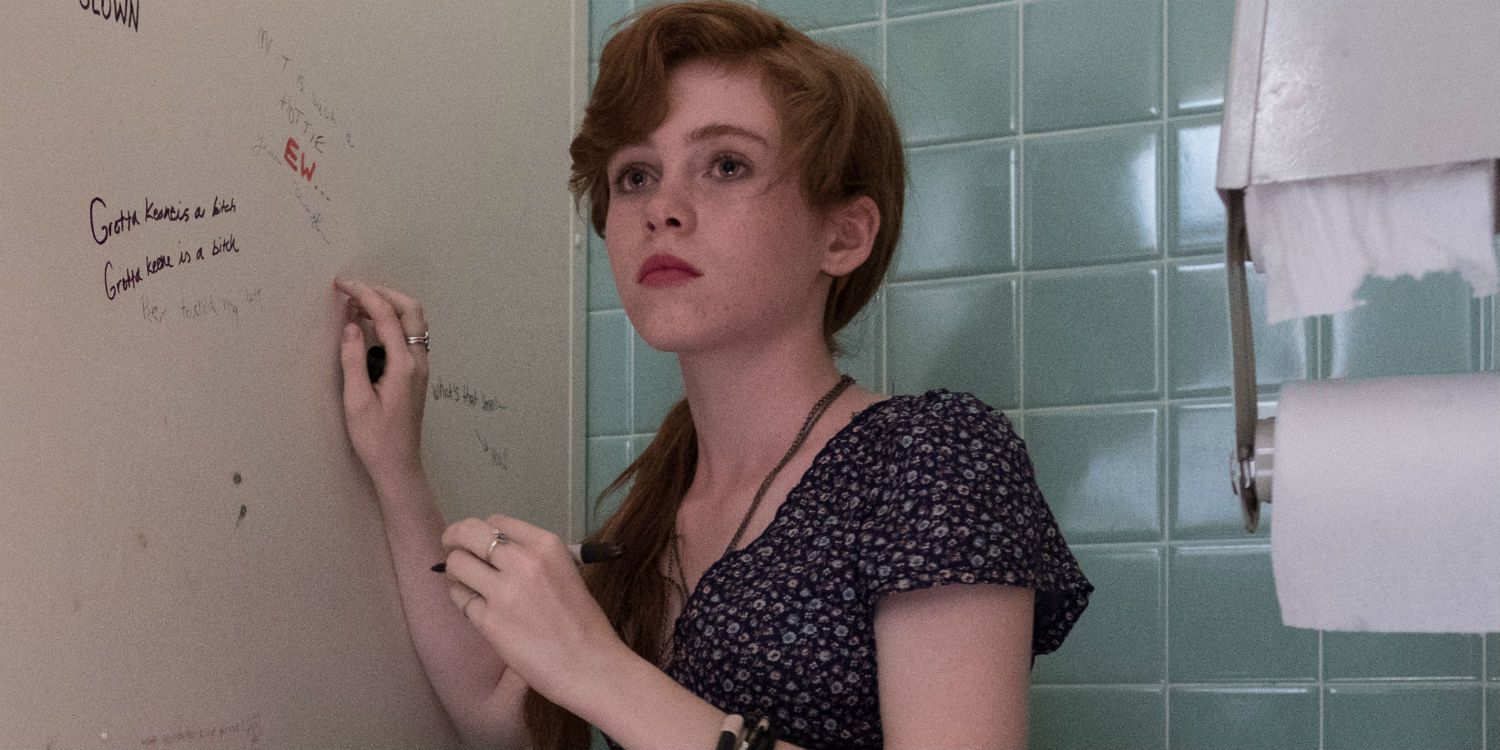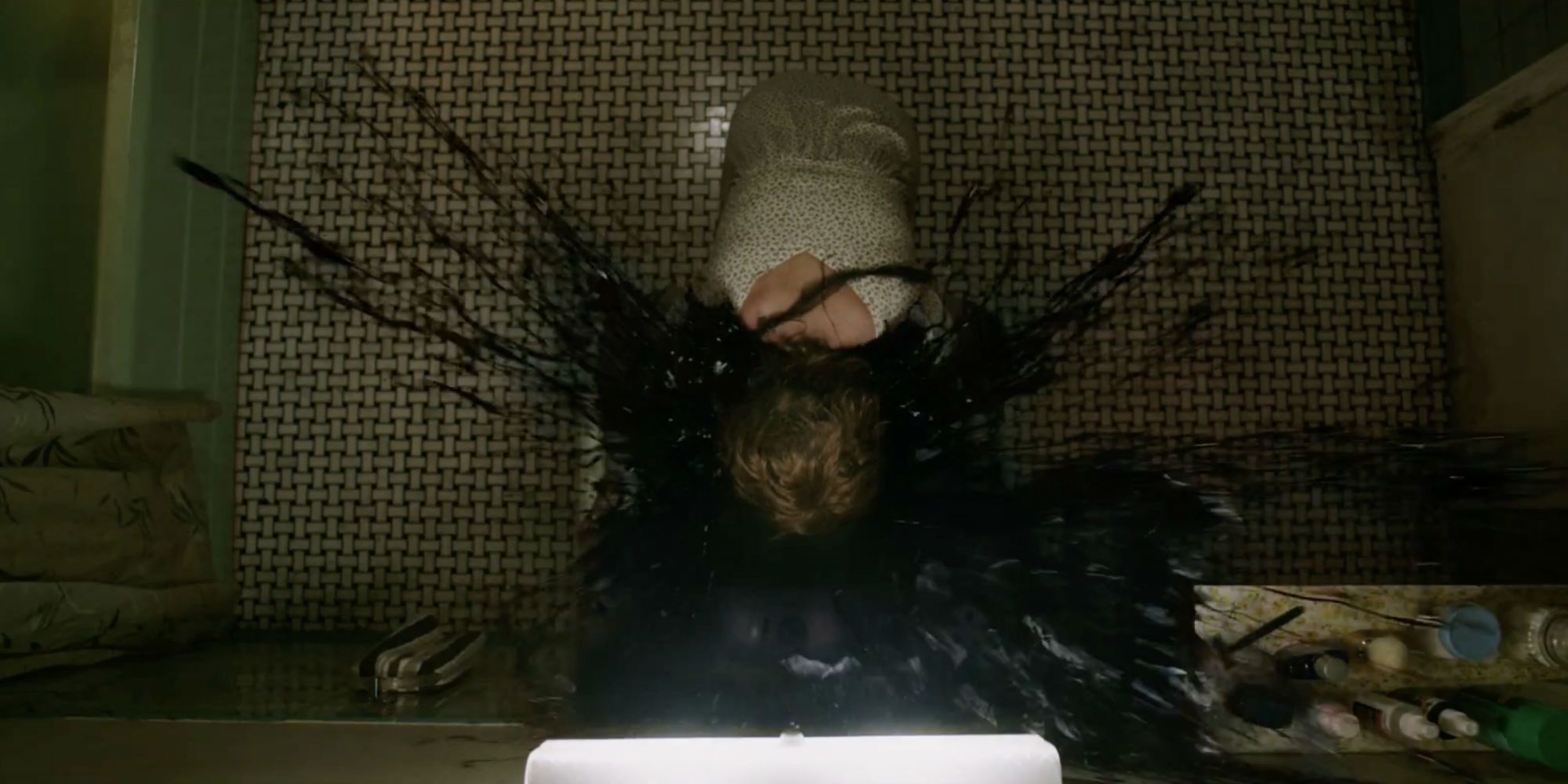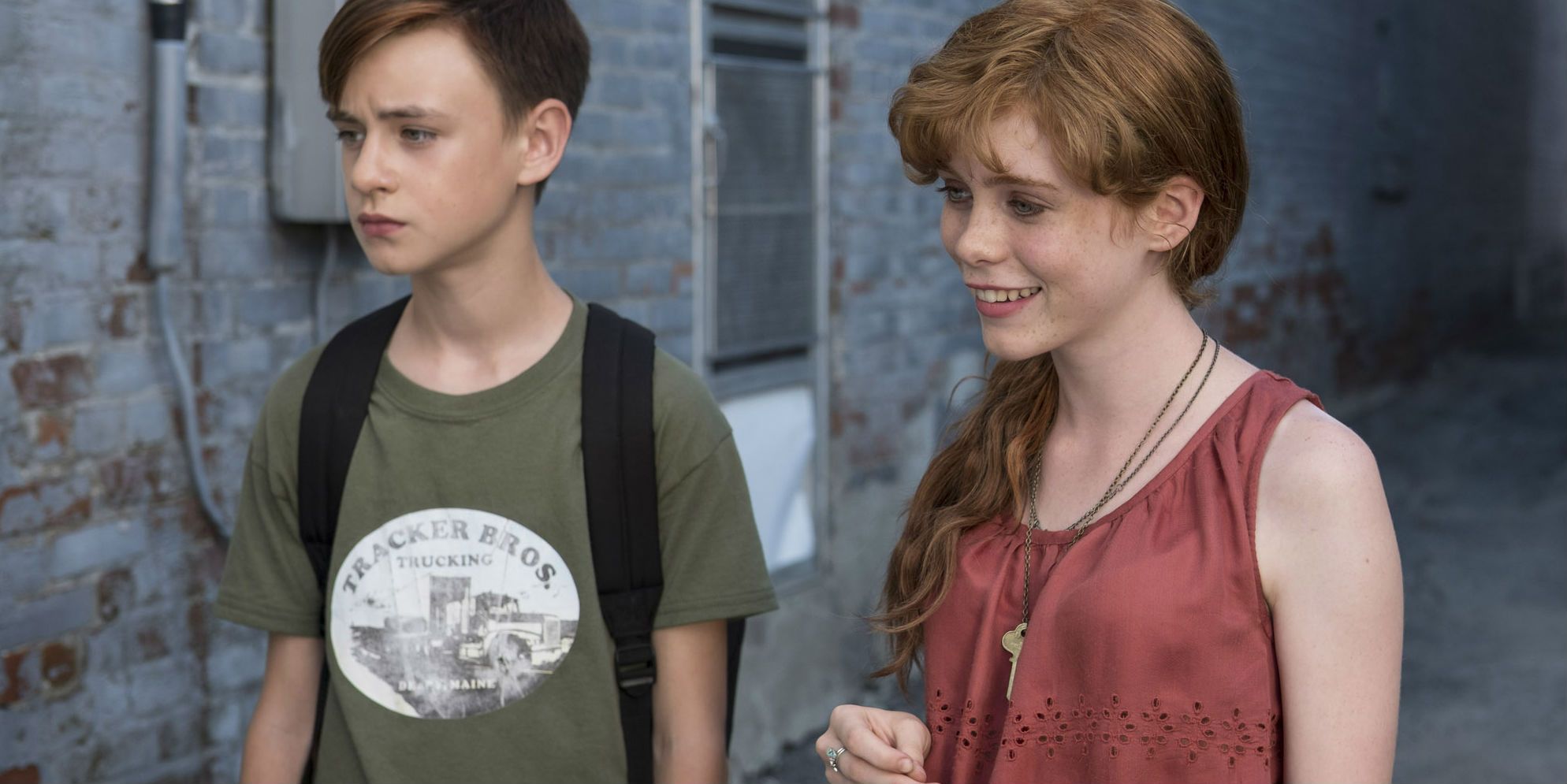The new adaptation of IT takes many liberties with the source material, but one thing that remains intact is how well realized the town of Derry, Maine is. Between the geography and the various landmarks like the high school, theater and arcade, Derry feels like a town that's really lived in. As much is crucial to the terror of It because without being a breathing suburbia, Pennywise's (Bill Skarsgård) ongoing tirade wouldn't inspire many chills.
More than that, it was important to get Derry right so that the real horror of IT could fester. Beneath the more obvious horror, the movie is about the ways in which people get stuck in small towns, and how they get swallowed up by the terrors beneath the quaint facade. For that to function, we have to believe in the town and its people, and how things are hidden behind the polite smiles and quiet family lives. Of the different, inter-woven lives we follow in IT, none are as true to this central theme than that of Beverly Marsh (Sophia Lillis) and her father (Stephen Bogaert).
So much is achieved with so little between Beverly and her father. Their interactions are minimal, but they tell a story of abuse and survival that never forgets the humanity, and agency, of the victim. From the first time we see the two together, with him inquiring if she's still his “little girl,” it's clear something's wrong. From the sinister dialogue, the way the shot highlights their height difference, and the dimly lit ambience of the apartment, we don't need to be told something horrible happened, because we can feel the temperature of their home the same way Beverly can. It's cold, isolating, and haunted by things more immediate than the threat of a ghoulish clown.
The way Pennywise attacks Beverly feeds into this. When she discovers Ben's (Jeremy Ray Taylor) postcard, she goes to read it sitting in the bathtub of the bathroom instead of her room, where she feels comfortable away from the prying eyes of her father. This is the same bathroom in which she cuts her hair in an act of self-control, and the same one we see her relaxing in later. The bathroom is her safe space – and in its bloody assault, Pennywise defiles that. It attacks her in the only place in her home where she feels she can be herself, and then adds insult to injury by blinding her father to the blood-painted walls, so he still only sees his little girl.
Horror has long been the genre of rape-revenge, where women's fears of sexual abuse are brought to life through power fantasies of overcoming the suffering and anguish through vengeance. While this is all well and good, a side-effect is that many stories that include abuse and sexual assault as a device also feel the need to demonstrate the acts onscreen, playing to the masochistic freedom horror provides. The problem, then, is that many movies that deal with the psychological effects of being an abuse victim exploit the triggering event for shock or entertainment, meaning many of the protagonists in these films are only ever victims to us.
Muschietti's IT introduces Beverly completely independently from her home life. At the start, she's a bullied kid at school - targeted for a false reputation of promiscuity that just adds it to the pile of suffering she already deals with. Then she's the only person to show Ben any kind of kindness, before she gets involved with the Losers Club by helping them steal medical supplies from the local pharmacy. Though there are flaws in her portrayal (some shots of how the other boys see her are a bit questionable, especially given that Lillis was only 14 at the time of filming) she's shown to be kindhearted, confident and resourceful before her dad even enters the picture. Her trauma is handled similarly to how Mad Max: Fury Road portrayed Immortan Joe's wives; we're never told the extent of the the horrors they had to face, but enough is given to us that such information is unnecessary. We believe in their struggle because our individual imaginings of what happened to them are horrifying enough.
This is not just what makes Bev's plotline resonate - it's what makes her story so crucial to the film. Most of the Losers have a less than ideal relationship with their parents: Bill's father slams his son's attempts to find out what happened to George; Stan's dad treats his son harshly when he struggles to learn the Torah recital for his bar mitzvah; and Eddie's mother, it's revealed, has been keeping him medicated on placebos. Yet Bev's arc is the one that matter, because for her there is no repairing her relationship with her father. No amount of family counseling or discussion can change what he did to her. Her only hope is to get away from Derry, Maine and that awful, abusive man, and it has to be sooner rather later.
Beverly getting to do that is what makes the ending really work. Her finally standing up to her dad, only to be immediately kidnapped by Pennywise, is the real top-of-the-second-act, all-is-lost moment that spurs the final confrontation. The Losers facing Pennywise is momentous not because of Bill getting closure on George, but because they're fighting for Beverly to get to maybe have a normal life someday. And even despite the movie not letting Bev be as much of an active agent in her destiny as would be preferred, the last scene redeems it.
She, and the rest of the Losers Club of 1989, make an agreement to come back to Derry in 27 years should It rise again. She's moving away to live with an Aunt, and just before they each go their separate ways, she and Bill share a kiss. She finally gets to be a young girl, who only has to worry about regular young girl things – for 27 years, at least.



